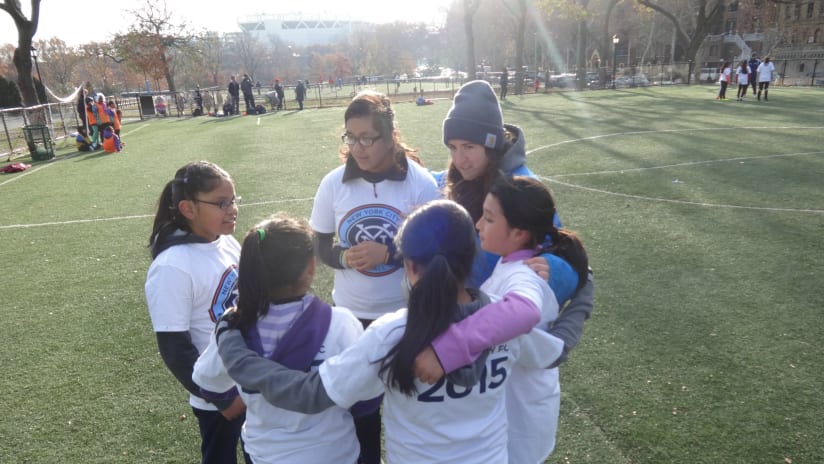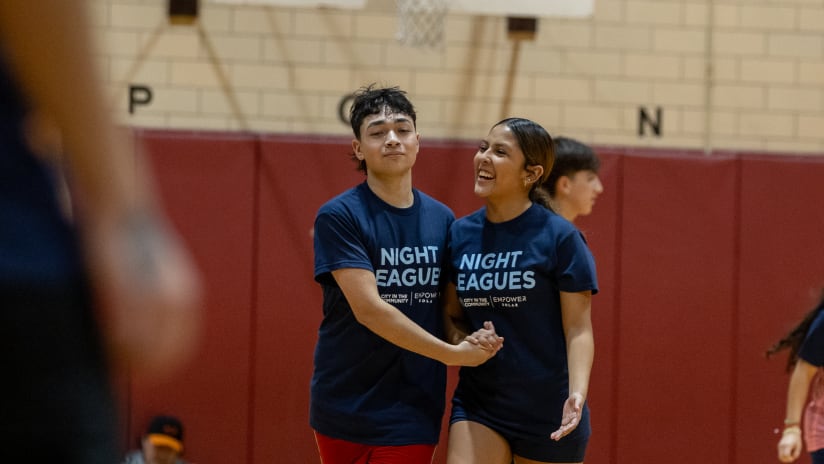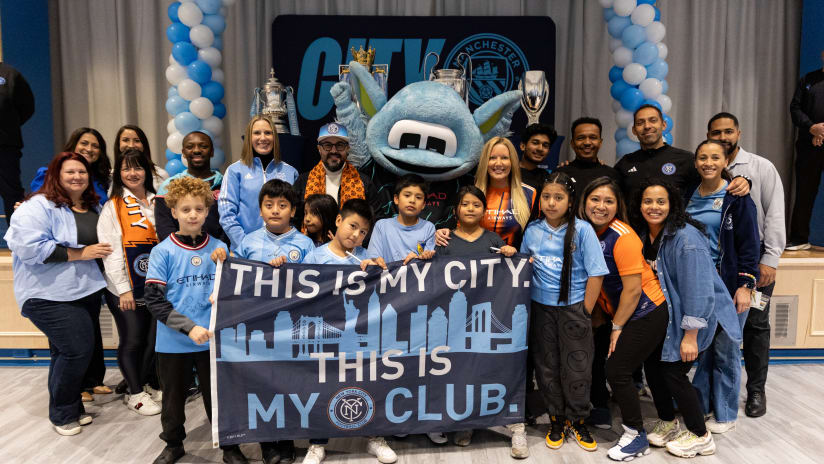Name?
Lilli Barrett-O’Keefe
Where are you from?
Chicago, IL.
Which School/Community Club do you Coach?
PS 182 in East Harlem
How long have you been Coaching?
I have been coaching with City Soccer since fall of 2014, but I have coached in a variety of contexts for over 5 years - with Day Laborers, prison inmates, domestic violence victims, and elementary school kids both domestically and abroad.
Tell us about your School/community soccer program?
Our school program meets every Thursday afternoon from 3:00-4:30 pm. Coach Ivan and I usually lead the group in a co-ed warm up and then split the students into two separate groups based on gender. I always like to start and conclude each session with a quick chat and a cheer. I try to reinforce the notion of a “team” and the idea that we cannot compete or play if are not present and supportive of one another. There are 6 girls in the program, most of them beginners.
What are some of the challenges youth faced in your School/community you coach?
The biggest challenge I have witnessed is the lack of recreational space. Our practices take place on a jagged, uneven concrete basketball court. For a bilingual bicultural school, with a high percentage of Hispanic students, there is such a demand for a place to congregate and play soccer. The kids also face challenges that most elementary aged students face - bullying, absences, developmental changes, personal realization, issues at home, need for additional academic support, etc.
What impact does soccer have on the kids you coach?
I have witnessed first-hand the immense impact soccer has on the kids participating in the program. Soccer provides them a space to both open up and engage in thoughtful conversations, while also providing an outlet for kids to "just be" and not have to talk about the pressures of everyday life. The game itself serves as a therapeutic escape from demands at school, home, and in their social lives. And most importantly, it is fun and the kids enjoy it!
What do you teach the kids through soccer?
While we spend a lot of time focusing on nutrition, healthy lifestyle habits, and teamwork, the biggest takeaway for the girls is a lesson in confidence. Girls are constantly told they are not as good as the boys, especially when it comes to sports. This is often expressed in actual particulars – one girl was informed that females were physically incapable of doing a push-up! In the beginning, we organized our sessions to be co-ed. However, I noticed that the girls were often too afraid to call for the ball or take on a tackle. I even found one of the girls hiding behind a swing set to avoid playing with the boys because she said she was too embarrassed to make a mistake. When we divided up by gender, I was able to communicate that they CAN play soccer and can even out play some of the boys. Many of them didn’t know about professional women’s soccer or that girls can go to college on a soccer scholarship. Most of their soccer role models are male figures or even male family members who play. Thus, I have made it my goal to try to amend their conception of soccer at large, instilling a different aspect of “soccer culture” that is rooted in female athleticism. Specifically, a female athleticism that is not measured by our comparison to the boys, but by our ability to meet and surpass our own expectations – and celebrate one another all along the way.
An anecdote on one of the kids you coach or a class you coach?
The first time I observed a City Soccer program, one of the girl players fell on the concrete and scrapped her knee. While her scrape barely bled, she was hysterically crying and I had to carry her off the field. We sat on the sideline and I led her through deep breathing exercises to help calm her down. The student cried for some time and we decided to go to the nurse to get a bandage and ice. Even though the scrap was virtually invisible, she sat out for the rest of the session and limped home.
After two sessions of working with the girls, I could see this particular student start leading the other girls, while also developing more of a field presence during the co-ed scrimmages. As I mentioned above, we began to create our own “soccer culture” and out of that grew 6 strong, skilled, eager and talented girls. During one of the matches, this student eagerly approached a 50/50 ball with a boy about three feet away. The boy ended up kicking the ball full speed in her direction, where it made direct contact with her face. She quickly ran off the field, choking back tears. She sprayed some water on her face and she giggled and told me she was taking her “calming breathes” as she ran right back on the pitch. After just two sessions of building camaraderie with her peers, learning that she is able to compete at the same level as the boys, she began to embody that confidence and demonstrate it both on and off the field.
Every week we encourage the students to come to Randall’s Island on Saturday to scrimmage other City Soccer participants, but this student had a different excuse each week about why she could not come. Two weeks ago, this student was one of the players to compete at City Soccer’s scrimmage against South Bronx United in the fall of 2014. Despite having little experience, she played the entire game and was one of the leading defenders in the match.
Being surrounded by other girls and playing in a supportive environment allowed her to develop her sense of self both as a footballer and an individual.








